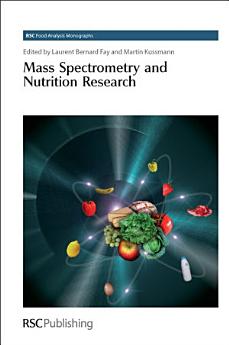Mass Spectrometry and Nutrition Research
About this ebook
About the author
Dr. Laurent B. Fay is currently the Head of the Nutrition and Health Department at the NestlÚ Research Center in Switzerland. After a Master in Nutrition in 1981 he completed his PhD in Biochemistry at Dijon University in 1985, and joined NestlÚ in 1989 after three years in the pharmaceutical industry. Dr. FayÆs current research aims at developing nutritional approaches that promote health and wellness throughout life. His research team focuses on providing practical food and beverage solutions for optimal physical and cognitive performance, growth and development, protection, and weight management. Composed of nutritionists and biologists from diverse fields including microbiology, molecular biology, immunology, allergy, gut physiology and cognitive science, they apply the scientific advances of today to meet the nutrition needs of tomorrow. Dr. Fay is the author of more than 160 peer-reviewed publications. He is honorary member of the Swiss Group for Mass Spectrometry. Prof. Dr. Martin Kussmann leads the Functional Genomics Group at the NestlÚ Research Centre and is Honorary Professor at Aarhus University, Denmark. His team at NestlÚ is responsible for Nutrigenomics and Nutrigenetics. They develop and integrate gene and protein expression profiling with bioinformatics and computational molecular science. Major application fields are immunology, diabesity, and physical performance. Being educated as an analytical biochemist, Prof. Kussmann has acquired research experience in the pharmaceutical, biotechnological and nutritional industry. Prof. Kussmann holds a M.Sc. and a Ph.D. in Chemistry, obtained at the Universities of Aachen and Konstanz, Germany, and at the University of California, San Francisco, USA. During his doctorate and post-doctorate, he has specialised in analytical biochemistry, proteomics and genomics.








